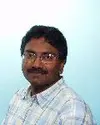Webinar: Can water supply, sanitation and hygiene be a preventive medicine?
May 12, 2014 | 15:00 h - 16:30 h
Open webinar on:
Can Water Supply, Sanitation and Hygiene be a Preventive Medicine?
Date and Time: May 12, 2014 15:00 – 16:30 (CET)
Organizers: International Water Resource Association (office@iwra.org)
Moderator: Tom Soo, Executive Director of the International Water Resources Association, France.
Panelists:
Dr. V.S.<link http: www.zef.de external-link-new-window external link in new>Saravanan, Senior Researcher, Center for Development Research (ZEF), University of Bonn, Germany;
Dr. Daphne Gondhalekar, Scientific Director, Centre for Urban Ecology and Climate Adaptation, Technical University Munich, Germany;
Professor Peter P. Mollinga, Professor of Development Studies, School of Oriental and African Studies, Univeristy of London, United Kingdom;
Ms. Bukirwa Faridah, Water Specialist, Ministry of Agriculture, Uganda.
The importance of water supply and sanitation for improved human health had gained prominence in the developing world thanks to the Millennium Development Goals (MDGs). Increasing population, rapid urbanization, agricultural developments, globalization, industrial development and poor wastewater regulation have affected the quantity and the quality of water around the world. Worldwide, development agencies have increased their investment in water supply and sanitation as a ‘preventive medicine’ to
address the growing threat from infectious water-related diseases.
In spite of these improvements, improved health from these interventions are rare. Our panelists will discuss the experiences from several case studies in rapidly growing economies and concur in the failure of water supply and sanitation intervention in improving human health. They have concluded that national and international development agencies have considered the WSS goals as global targets, without meaningful local adaptation.
Our webinar panelists will discuss how international, national and regional actors should consider the international goals (as evidenced through the MGD’s) as super-norms’ and should strive to contextualize
these goals by playing ‘politics with principle’ to innovate the socio-technical and institutional dimensions for integrated water, sanitation and hygiene to reduce the threat from infectious diseases.
This webinar is based on the themes discussed in the first IWRA policy brief: Can water supply, sanitation and hygiene be a preventive medicine? This policy brief is available at <link http: www.iwra.org external-link-new-window external link in new>www.iwra.org. Each policy brief is written by leading experts in the field, and is a synthesis of the critical facts and arguments needed to help the reader understand timely water policy issues. These briefings are designed to reach academics, dedicated practitioners, and policy professionals in a unique and informative way. Each policy briefing coincides with a special issue of our flagship publication, Water International, allowing interested readers to further explore these salient themes and topics in more depth.
To participate
Participation is free and open to all.
Registration link: <link https: attendee.gotowebinar.com register external-link-new-window external link in new>attendee.gotowebinar.com/register/7552412688372670466
Panelist Biographies
Dr. V.S.<link http: www.zef.de external-link-new-window external link in new>Saravanan, Senior Researcher at the Center for Development Research (ZEF), University of Bonn, Germany.
Dr. Saravanan is a senior researcher at ZEF, Bonn, Germany. He specializes in the analysis of water resource institutions and human health. Trained in human and physical geography, he draws on theories of integrated water resources management, different ‘new institutionalisms’ in social science, urban metabolism, health systems research and systems approaches to analyze risk from global environmental change in the water resources – human health interaction. The geographical focus of his research is South Asia, Central Asia and Africa.
Dr. Daphne Gondhalekar, Scientific Director of the Centre for Urban Ecology and Climate Adaptation, Technical University Munich, Germany.
Dr. Daphne Gondhalekar is an urban planner and Scientific Director of the Centre for Urban
Ecology and Climate Adaptation (www.zsk.tum.de), Technical University Munich, Germany. Dr. Gondhalekar specializes in integrated urban planning, with particular focus on water and health in
Germany, China and India. Previously, Dr. Gondhalekar worked as Senior Researcher at the Center for Development Research (ZEF), University of Bonn (2009-13), at Environmental Planning Collaborative, an NGO in Ahmedabad, India (2008), and at the Department of Urban Studies and Planning at Massachusetts Institute of Technology (MIT) in Cambridge, MA, USA (2007-8). She holds a Ph.D. in Urban Planning from the University of Tokyo, Japan, on Eco-city development in China, and lived in China for several months. Dr. Gondhalekar has conducted professional training sessions at the United Nations Human Settlements Programme (UN-HABITAT) World Urban Forum (in 2010 and 2012) and has also worked as a consultant for UN-HABITAT, GIZ and Adelphi.
Professor Peter P. Mollinga, Professor of Development Studies, School of Oriental and African Studies, University of London, United Kingdom.
Professor Peter P. Mollinga was trained as an irrigation engineer at Wageningen University, the Netherlands. His PhD was on the political economy of irrigation water management in South India. He is Professor of Development Studies at the School of Oriental and African Studies (SOAS), London, UK,
where he also heads the Centre for Water and Development. He is one of the three founding editors of Water Alternatives, an interdisciplinary journal on water, politics and development. His research fields are water governance and water politics, agrarian change and technology, and inter- and transdisciplinary
approaches to natural resources management. His geographical focus is Asia, particularly South Asia and Central Asia.
Ms. Faridah Bukirwa, Water Specialist, Ministry of Agriculture, Uganda.
Ms. Bukirwa is a water specialist with experience working in projects on capacity building and capacity needs assessment in the water sector, fisheries resource use and management. Her educational background is in Integrated Water Resources Management and Fisheries Science. Currently she works with
the Ministry of Agriculture in the Republic of Uganda. Previously, she worked with the United Nations Water Decade Program on Capacity Development-UNU Bonn. She has a working experience in Uganda, Tanzania and Malawi and on projects funded by international donors such as the EU.


